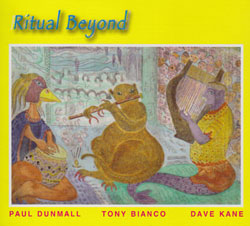
Live recordings from 2009 at Delbury Hall with the mighty Paul Dunmall on tenor and clarinet; blistering music from an incredible trio playing seriously smoking free jazz.
In Stock
Quantity in Basket: None
Log In to use our Wish List
Shipping Weight: 3.00 units
EU & UK Customers:
Discogs.com can handle your VAT payments
So please order through Discogs
Sample The Album:
Paul Dunmall-Tenor Saxophone
Tony Bianco-Drums
Dave Kane-Bass
Click an artist name above to see in-stock items for that artist.
UPC: 786497182022
Label: FMR
Catalog ID: FMR 286
Squidco Product Code: 13068
Format: CD
Condition: New
Released: 2010
Country: Great Britain
Packaging: Digipack, not sealed
Recorded By Chris Trent At Delbury Hall July 15th, 2009.
"The band was smoking, they were burning, they were on fire. Just some of the expressions used to denote a truly affecting jazz experience, but not to be taken literally. So imagine the concern of the patrons in north London's Vortex jazz venue as smoke was spotted curling up from the amplifier of bassist Dave Kane not long into the first set. Not surprisingly the first signs were an acrid smell that some attributed to the candles, and the sudden inaudibility of the bass, immediately apparent to Kane though quite hard for the audience to detect behind the onslaught of drummer Tony Bianco's percussive whirlwind.
Both were here as part of a trio completed by saxophone master Paul Dunmall. Once the saxophonist became aware of Kane's predicament he was able to get the message across to Bianco. Musicians often retreat to a different realm of consciousness when in full spate, and this was certainly the case with Bianco who, with eyes closed and limbs mesmerically flailing, seemed oblivious to perceived danger. Once Dunmall's proximity had registered and the saxophonist was able to convey the problem, Bianco quickly drew the piece to a close, but still with enough presence of mind to mirror his opening gambit of playing with a shaker in one hand and his two sticks in the other, for a snapshot of how structure can be imputed to totally improvised settings. Happily another amp was soon found, and after a brief hiatus the trio was able to resume.
This pairing of American expat Bianco with the British reedman was a repeat of an appearance at the Vortex almost a year previous. On that occasion they performed as a duo, following the double booking of bassist John Edwards, so successfully it was difficult to see where a bassist might have fitted in. Tonight they did have a bassist, notwithstanding the burntout amp, in the upcoming talent of Leeds-based northern Irishman Dave Kane. Kane's reputation is growing, based on his partnership with pianist Matthew Bourne and drummer Steve Davis, who together with Dunmall released the excellent Moment To Moment (Slam, 2009), and his helming of the Leeds Improvised Music Association. Bianco and Dunmall share a history going back some fourteen years since the New York-born drummer relocated from Berlin to London. In that time they have collaborated on numerous occasions, including the acclaimed Utoma Trio (Emanem, 1999), with the most recent being the blistering Spirits Past And Future (DLE, 2008) on the reedman's own imprint.
Typically for Dunmall this was a totally improvised outing without any prior discussion of destination, played out over two sets weighing in at almost 90 minutes. Much of the interest lay in the strategies adopted for working with Bianco's non-stop drumming style, which was the defining characteristic of the evening. Bianco has evinced an interest in deriving drone tones from his drums, which he achieved through fusillades of rhythms spinning around a still center, such that he paradoxically imparted forward motion yet remained in the same place, the aural equivalent of a runner on a treadmill."-FMR
Artist Biographies
• Show Bio for Paul Dunmall "Paul Dunmall was born 1953, Welling, Kent; saxophones, clarinets, bagpipes, miscellaneous wind instruments. As told to Watson (1989), Paul Dunmall was a working class lad from Welling who left school at 15 and spent two years repairing instruments at Bill Lewington's shop in Shaftesbury Avenue, London. He turned professional at 17 and, following two years touring Europe with a progressive rock band (Marsupilami), joined the Divine Light Mission, a spiritual movement led by Guru Maharaj Ji and moved from London to an ashram in America. He told Isham (1997), 'I moved to an ashram full of musicians - a music ashram - but it was still spiritual practice. That gave me a spiritual understanding through meditation, Coltrane's music, and all the rest of it, led me to that, and that's been a fundament in my life ever since - that I can actually sit down and meditate and forget my body. I realise how important meditation is in my life... but I don't do it so much these days.' During the three years he lived in America, Dunmall played with Alice Coltrane (in a big band with the Divine Light Mission) and toured for twelve months with Johnny 'Guitar' Watson. Back in England, he played with Danny Thompson and John Stevens as well as folk musicians Kevin Dempsey, Martin Jenkins and Polly Bolton and then, in 1979 he became a founder member of Spirit Level (Tim Richards, piano; Paul Anstey, bass; Tony Orrell, drums), staying with the group until 1989. During his time with Spirit Level, Dunmall joined the two-tenor front line group Tenor Tonic with Alan Skidmore (1985), played and broadcast with Dave Alexander and Tony Moore in the DAM trio (1986) and formed the Paul Dunmall Quartet with Alex Maguire, Tony Moore and Steve Noble (1986). In 1987 Paul Dunmall joined the London Jazz Composers Orchestra, being a constant member and appearing on all their recorded output from that date onward. The following year the improvising collective quartet Mujician was formed by Keith Tippett, Dunmall, Paul Rogers and Tony Levin and has continued to be a regular performing, touring and recording group, sometimes augmented by other musicians. Dunmall has also played in a trio with Keith and Julie Tippetts and in Keith Tippett's big band Tapestry. Two other duos have also sprung out of Mujician: Dunmall with Tony Levin (two CD releases) and Dunmall in folk-influenced outings with Paul Rogers. Another regular playing partner throughout this period and up until the present includes Elton Dean. In 1995, two trios were formed, the first with Oren Marshall, tuba and Steve Noble, percussion, the second with John Adams, guitar and Mark Sanders, percussion, these sometimes coming together as a quintet. More recently, Dunmall has played in another reeds/guitar/drums trio with Philip Gibbs and Tony Marsh and there appears to be regular crossover between all these players. The Paul Dunmall Octet was founded in 1997." Dunmall also has released a large number of albums and a box set on the UK FMR label, in various configurations and instrumentation. ^ Hide Bio for Paul Dunmall • Show Bio for Tony Bianco "The unlimited vistas of music show us our own limitless perceptions of our being. My hopes of music are my hopes for art and humanity. I was born in New York City, the son of a drummer and the grandson of a guitar player. I always saw music as a work of heroes. My father saw music more as a vocation than an occupation. I was lucky. Growing up in New York City I could experience the greatest sounds in jazz. Seeing these greats play was a blessing. I remember seeing Elvin, Mingus, Art Blakey, Woody Shaw, Miles, Liebman, Tony Williams, Dexter Gordon, Ron Carter. What an experience. This intensified my love for this music. I always thought that there was a point to it all. A reason. I took chances in my life because of this. I was always single-minded. I had a hard time compromising. I knew being a musician was a career, but I was never business minded. I just floated. Of course, my father was always anxious for me. He wanted me to play some kind of jazz he understood, but I just played what I heard at the time. I felt jazz was a very contemporary sound, not just a sound that was based on the past although I have great respect for the past. I think these perceptions come naturally from the time we live in. Progress. What is sound? What is perception? I never felt I was good enough. A father who loved the greats can be very intimidating. I was always searching for some perception that was my own. There was a time I thought 'forget music - it's impossible. You'll never have your own attitude'. Then I heard John Coltrane. He made me feel it was possible. Praise and Thanks. Of course growing up in New York I thought these sublime thoughts but I had to make a living. I thought of myself as a drummer. I did what I thought a drummer should do. I became, of course, less idealistic and did all kinds of work - any work that would come my way. This included all genres. I thought of myself as a jazz musician but I seemed to be playing everything else except jazz. I got a steady gig in New York City in a warm-up band in a famous comedy club - Catch a Rising Star. It's a legendary comic club that a lot of the great comedians came through (Jerry Seinfeld, Chris Rock, Robin Williams, Richard Belzer). It was actually a great experience - kind of like a talkshow band (Jay Leno, David Letterman). It was a steady gig and it was real easy, and of course I could just float. The bass player on the gig was Lloyd Mair. He was a devotee of avant garde music and jazz. He knew some really interesting things about jazz. I learned a lot from him. Lloyd was great. Of course being at this club I played in some pretty interesting situations - Edgar Winter, Pat Benatar. I even played drums behind Andy Kaufman doing his Elvis routine. This club had more of a vibe than anything else. Anyway, it was a steady gig (five years). In that time I explored my own ideas and met a lot of musicians. One became a close friend - a tenor player Mac Goldsberry. He introduced me to a lot of the New York City players even though he was from Texas. Through him I played and recorded with Ed Schuller, Herb Robertson and Charlie Elgart (a commercial FM sounding jazz). I started to write music at that time. I made a recording with John Hart on guitar. At the same time I hooked up with (through Goldsberry) the singer, writer, jazz musician and poet Bob Lennox and his son Adam. Through Adam I first met Liebman. We did a record and gig doing this progressive rock thing. At this time also I also did a recording with Anthony Jackson, the legendary electric bass player. I also started to play more free jazz at this time. But things in New York for me weren't really going well. I broke up with my first wife and was feeling kind of dark. I was really going through a lot. There was a lot more going on than I could write about. You dig? I met some musicians from the University of Miami (Mike Gillis, legendary guitar player and great guy) and went to Japan for a few months with them. On coming back to the U.S. one of the teachers from the University said why don't you come to Miami - maybe we could hook you up with a teaching gig there. Then I thought, well okay, what else is there to do. I went to the International Jazz Educators Seminar at the University to check it out - see if I could get a gig. Anyway, at one of the parties that night I met Liebman, and he said to me 'What are you doing here?' I said maybe I can get a gig teaching here. Then he said forget that - go to Berlin where some of your mates went to live and play jazz (Lennox, Goldsberry). Liebman said that I needed to get out of NYC to see myself. He said if you were born there you needed to get out to feel yourself - New York is such an intense city (that was 1990). Anyway, I decided to got to Berlin - I had some money from that gig in Japan and borrowed some money from my Japanese girlfriend (Naomi) and sold my grandfather's vintage guitar (I got ripped off) and went off to Berlin. I moved to Berlin in 1991. It was great. The Berlin Wall had recently come down and there was a good feeling in the air. I started to do more of the music I wanted to do (jazz). This city had a very free feeling. I started to work with Alex von Schlippenbach and his wife Aki Takase, and Gerd Dudek. I had an opportunity to hang and play with Reggie Workman on a Schlippenbach gig and was very honoured that he seemed to like me. I was learning more about the European free improv scene. At the same time I worked with the late legendary bass player Jay Oliver who influenced me in some rhythmic concepts and attitude. I was also privileged to work with the late gypsey guitarist Costa Lucas. My rhythmic concepts really took a turn when I worked with Hans Hartman (bass and stick player) and Turkish percussionist Mesut Ali - these guys could really play in different time signatures. At this time I was really understanding a different sort of sound. I lived in Berlin until 1995. I felt a longing for some familiarity at this point (the English language). I returned to New York for a few months, then joined my wife (who I met in Berlin) in London. We had enough money for one month's rent and a phone. I had to borrow my first drum set, but somehow met some of the guys. I met Loz Speyer (great guy) who got me a drum set and he introduced me to a lot of the straighter players. I also met Alex McGuire who introduced me to Elton Dean, from where I met the rest of the free scene. I met Paul Dunmall and we played and recorded some great music together. I also made some great music and recordings with Elton. I started to complete some of the ideas I came up with in Berlin. I came up with a project called Freebeat with Elton Dean and sound engineer, Jon Wilkinson. It was a concept of playing through time signatures but playing also free through it. It never materialised as a label-released record but it inspired a lot of ideas. These ideas interested Dave Liebman. I recorded a similar but different project with him in Berlin (2003). These ideas and projects were never released either but I am working on it. The CD 'In a Western Sense' handles some of these same concepts. I think that time signatures are a way of defining phrasing. My music really doesn't watch the time signature as much as the phrasing. Through beats (a drum thing) you can keep a pulse but have no number on the pulse. It's not in 1-1. That's impossible, since the phrasing has to be in one and it's not. It is actually many different time signatures but one pulse. I could explain this in more detail but not on a website bio. Anyway, this concept influenced practically all my musical ideas. Time and no time were brought together. Liebman told me I came into the world to do this. Who knows. The thing is that my improvised and free music seems to have this pulse in it. It is done quite unconsciously on some level (I think it was to do with my studies or working out these concepts) and on another level quite deliberate. I do have a method. Sometimes great complexity is held together by great simplicity. Anyway, I moved to London in 1996 - it's been good and bad - what hasn't? It's been a hard place for me to meet people but I did get some records out. I played and recorded with Paul Dunmall, Elton Dean, Simon Picard, Paul Rutherford, Keith Tippett, Paul Rogers, Marcio Matthos and John Edwards. Some great music was played. I was also very fortunate to meet the band that played 'In a Western Sense' - Zoe Rahman, Carlos Lopez-Real and Oli Hayhurst. I have (probably because I am an American) the need to combine the sounds of straight and free jazz. It is part of my instinct. Like many other musicians at this time. It seems to be what is happening. Reason and chaos, chaos and reason. Maybe it resolves in peace."-Tony Bianco ^ Hide Bio for Tony Bianco • Show Bio for Dave Kane "Composer/ Bassist Dave Kane was born in a small town called Bangor in County Down in Northern Ireland. At age 16 he bought an electric bass guitar from a catholic priest for 50 pounds, and began moving his fingers up and down the ' E ' string in local punk and alternative bands. With aspirations of eventually playing on the other 3 strings of the bass, Kane began studying music at a local college with the internationally acclaimed composer and bandleader Brian Irvine. As a direct result of hanging out with Irvine, Kane began to explore the idioms of free improvisation, contemporary jazz, classical music, funk, metal, red wine and general mayhem! Further exploration was required, so Kane rowed across the irish channel on his double bass and studied Contemporary music (essay writing!) at Bretton Hall College of the University of Leeds. Unfortunately there were no influential teachers there like Irvine, so he learnt how to use a library and subsequently encountered the music of John Cage, Edgar Varese, Cecil Taylor, Barry Guy, John Coltrane, Iannis Xenakis, Charles Mingus, Frank Zappa and John Zorn. Upon graduating from University Kane lived and worked in London for a while trying to get his 'shit together' and playing free music with some British Jazz legends including; Keith Tippett, Paul Dunmall, Elton Dean, Evan Parker, Tony Levin, Mark Sanders, Paul Rogers, Alex Maguire and many other heads! Currently based in Leeds, Kane is a founder member of L.I.M.A. (Leeds Improvised Music Association) and the musical director/ composer for the L.I.M.A orchestra. An ever expanding large improv orchestra featuring some of the UK's finest young musicians inc, Matthew Bourne, Chris Sharkey, Christophe De Bezenac, Petter Fadnes. Other projects include; The internationally acclaimed Bourne/ Davis/ Kane. Dave Kane ( solo double bass + voice ). The Shank Trio (featuring saxophonist James Allsopp and drummer Tim Giles). Didrik Ingvaldsen's Quartet Alpha. Dave Kane's Rabbit Project." ^ Hide Bio for Dave Kane
6/25/2025
Have a better biography or biography source? Please Contact Us so that we can update this biography.
6/25/2025
Have a better biography or biography source? Please Contact Us so that we can update this biography.
6/25/2025
Have a better biography or biography source? Please Contact Us so that we can update this biography.
Track Listing:
1. Ritual Beyond 19:41
2. Feathered Stone 15:46
3. Saraswati 17:44
4. Beyond Rituals 15:29
Improvised Music
Jazz
European Improvisation and Experimental Forms
London & UK Improv & Related Scenes
FMR Records
Trio Recordings
Search for other titles on the label:
FMR.



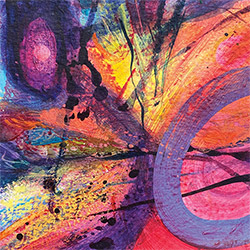

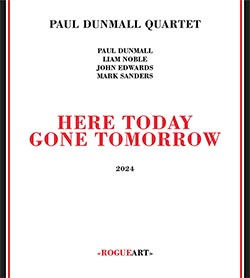
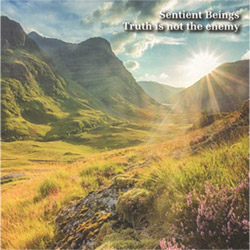
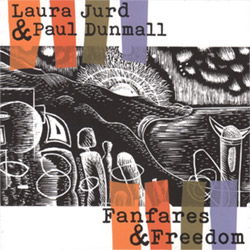
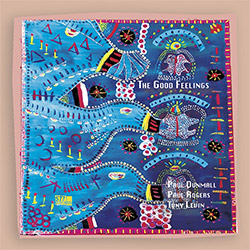
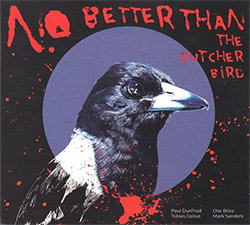
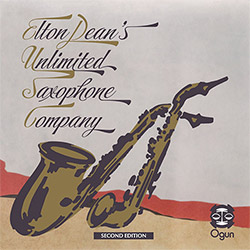
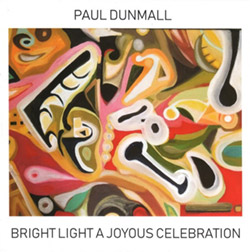
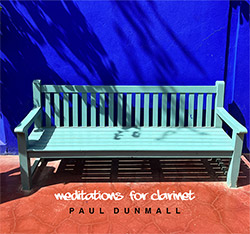
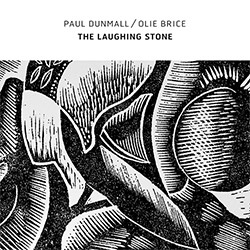

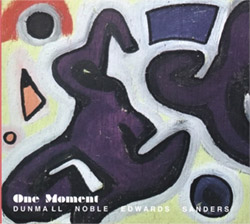
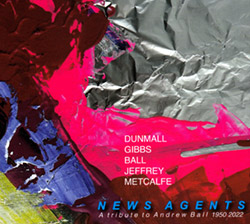

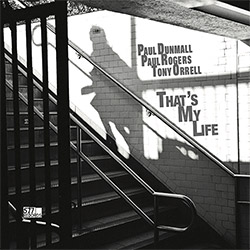
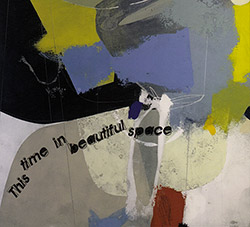
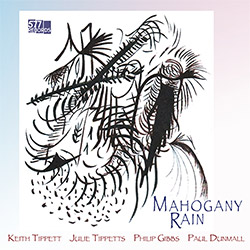


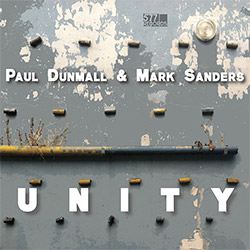
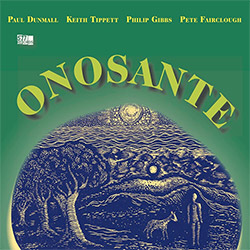






![Eternities: Rides Again [CASSETTE]](https://www.teuthida.com/productImages/misc4/36247.jpg)

![Lopez, Francisco: Untitled (2021-2022) [2 CDs]](https://www.teuthida.com/productImages/misc4/36438.jpg)




![Eventless Plot | Haarvol: The Subliminal Paths [CASSETTE + DOWNLOAD]](https://www.teuthida.com/productImages/misc4/36232.jpg)












![Eventless Plot | Francesco Covarino: Methexis [CASSETTE + DOWNLOAD]](https://www.teuthida.com/productImages/misc4/36231.jpg)

![Brown, Dan / Dan Reynolds: Live At The Grange Hall [unauthorized][CASSETTE]](https://www.teuthida.com/productImages/misc4/36245.jpg)





![Das B (Mazen Kerbaj / Mike Majkowski / Magda Mayas / Tony Buck): Love [VINYL]](https://www.teuthida.com/productImages/misc4/36329.jpg)


![Hemphill Stringtet, The: Plays the Music of Julius Hemphill [VINYL]](https://www.teuthida.com/productImages/misc4/36409.jpg)



![Halvorson, Mary Septet: Illusionary Sea [2 LPS]](https://www.teuthida.com/productImages/misc4/17952.jpg)




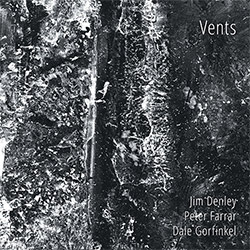
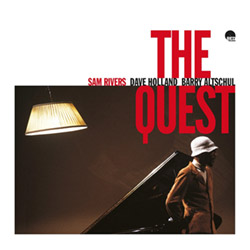
![Re-Ghoster Extended: The Zebra Paradox [VINYL]](https://www.teuthida.com/productImages/misc4/36204.jpg)
![FDF Trio: Possibility And Prejudices From Within A Cup [VINYL]](https://www.teuthida.com/productImages/misc4/36205.jpg)
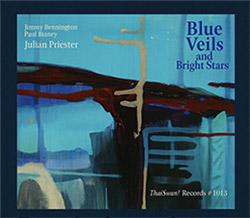

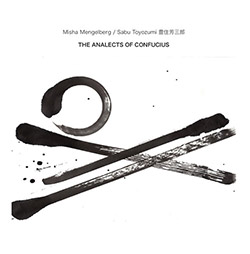

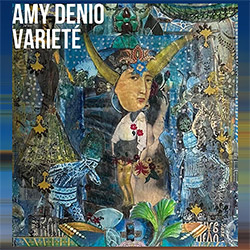



![Money : Money 2 [2 CDs]](https://www.teuthida.com/productImages/misc4/35894.jpg)




![Klinga, Erik: Elusive Shimmer [VINYL]](https://www.teuthida.com/productImages/misc4/36258.jpg)
![CHANGES TO blind (Phil Zampino): Volume 9 - I Wave on a Fine Vile Mist [CD + DOWNLOAD]](https://www.teuthida.com/productImages/misc4/36061.jpg)

![Wallmart / Rubbish: Asset Protection [split CD]](https://www.teuthida.com/productImages/misc4/35900.jpg)


![+Dog+: The Family Music Book Vol. 5 [2 CDs]](https://www.teuthida.com/productImages/misc4/35897.jpg)
![Kuvveti, Deli : Kuslar Soyledi [CASSETTE w/ DOWNLOAD]](https://www.teuthida.com/productImages/misc4/36107.jpg)

![Nakayama, Tetsuya: Edo Wan [CASSETTE w/ DOWNLOAD]](https://www.teuthida.com/productImages/misc4/36105.jpg)




![Yiyuan, Liang / Li Daiguo: Sonic Talismans [VINYL]](https://www.teuthida.com/productImages/misc4/35957.jpg)






![Palestine, Charlemagne / Seppe Gebruers: Beyondddddd The Notessssss [VINYL]](https://www.teuthida.com/productImages/misc4/36206.jpg)
![Palestine, Charlemagne / Seppe Gebruers: Beyondddddd The Notessssss [NEON GREEN VINYL]](https://www.teuthida.com/productImages/misc4/36207.jpg)

![Laubrock, Ingrid: Purposing The Air [2 CDs]](https://www.teuthida.com/productImages/misc4/35639.jpg)

![Yoko, Ono / The Great Learning Orchestra: Selected Recordings From Grapefruit [2 CDs]](https://www.teuthida.com/productImages/misc4/35841.jpg)









![Zorn, John / JACK Quartet: The Complete String Quartets [2 CDs]](https://www.teuthida.com/productImages/misc4/35609.jpg)

![Lonsdale, Eden: Dawnings [2 CDs]](https://www.teuthida.com/productImages/misc4/35480.jpg)



![Sorry For Laughing (G. Whitlow / M. Bates / Dave-Id / E. Ka-Spel): Rain Flowers [2 CDS]](https://www.teuthida.com/productImages/misc4/35985.jpg)

![Rolando, Tommaso / Andy Moor : Biscotti [CASSETTE w/ DOWNLOADS]](https://www.teuthida.com/productImages/misc4/36106.jpg)


![Electric Bird Noise / Derek Roddy: 8-10-22 [CD EP]](https://www.teuthida.com/productImages/misc4/35970.jpg)








![Elephant9 : Mythical River [VINYL]](https://www.teuthida.com/productImages/misc4/34624.jpg)



![Elephant9 with Terje Rypdal: Catching Fire [VINYL 2 LPs]](https://www.teuthida.com/productImages/misc4/35355.jpg)
![Deerlady (Obomsawin, Mali / Magdalena Abrego): Greatest Hits [VINYL]](https://www.teuthida.com/productImages/misc4/34876.jpg)







![Surplus 1980: Illusion of Consistency [CD]](https://www.teuthida.com/productImages/misc4/35069.jpg)
![Staiano, Moe: Away Towards the Light [VINYL + DOWNLOAD]](https://www.teuthida.com/productImages/misc4/35037.jpg)
![Coley, Byron: Dating Tips for Touring Bands [VINYL]](https://www.teuthida.com/productImages/misc4/17906.jpg)

![Lost Kisses: My Life is Sad & Funny [DVD]](https://www.teuthida.com/productImages/misc4/lostKissesDVD.jpg)